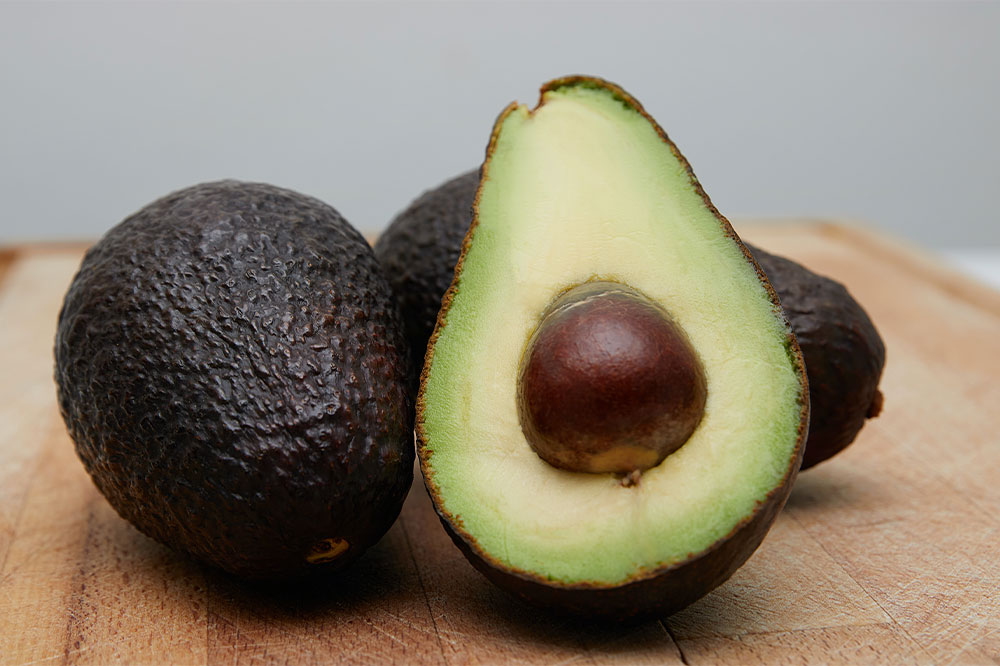10 foods to a brighter glowing skin

Skin care these days has become synonymous with splurging on masks, serums, creams, and massagers. As beneficial as these enriched solutions are, they cannot do it all. One of the main reasons for dull, lifeless skin is improper nourishment. It has long been known that the skin and hair reflect the kind of nourishment our body receives. Read this article to learn more about healthy and nourishing foods for nourished skin:
Avocados
If we had to pick just one food to maintain healthy glowing skin among the numerous options available, avocado would be it. Its rich and creamy texture provides versatility that helps incorporate the fruit into various recipes. Avocados carry a trusting balance of healthy fats, essential nutrients, and taste. It is truly a superfood that significantly assists in maintaining the skin’s firm and fresh look. Its fatty acid content makes it a natural moisturizer and keeps the skin dewy looking through all seasons.
Berries
Antioxidants have a bigger picture to paint when it comes to health than we generally give them credit for. The ability of these compounds to help maintain physical, mental, and emotional well-being is unmatched. So is their ability to keep the skin glowing, fresh, and free of blemishes. Including berries, such as blueberries, has been a sure solution to the free radicals damaging your skin. Opting for berries when you have the munchies delivers on a healthy body and mind and gives you unbeatable glowing skin.
Papaya
Maintaining healthy and glowing skin might seem like a math problem that calls for a lot of head scratching. But, it isn’t, as long as you include healthy fruits and vegetables in your meals. Foods with a high amount of Vitamin C are an absolute must for glowing, age-defying skin. Papaya is one such fruit that carries loads of Vitamin C. It boosts good health and is equally beneficial for good hair.
Walnuts
Omega 3 fatty acid is known for the numerous benefits it has for the body. Yet another essential nutrient, it is crucial to add omega-3-rich food to your daily menu since the body is unable to produce it. Walnuts are one such example. They provide the body with 2 essential fatty acids responsible for the skin’s moisturization. Rich with protein content, walnuts are your secret pathway to a natural hair and skin care regime that can make anyone jealous.
Spinach
Antioxidants are an important benefit of including green leafy vegetables like spinach in your daily meals. They are therefore well-equipped to fight off the damage faced by the skin. Green vegetables fight free radicals and prevent visible signs of aging. In addition, spinach has multiple essential vitamins and minerals that support the body in maintaining its health. The supply of healthy blood and essential nutrients to the skin results in a healthy glow.
Salmon
Another food packed with essential fatty acids is Salmon. The good fat packed in various fish is responsible for strengthening the skin’s cell membrane. Other fish like tuna, mackerel, and sardines can also be used. They are all rich in essential nutrients the body requires and make a great addition to your skin care regimen. Some added benefits of omega-3-rich foods in your daily meal plans include sun protection, hydrated skin, and free radical damage repair. Is there any need for more reasons to add fish to the foods recommended for glowing skin?
Bone Broth
Bone broth is rich in minerals and vitamins, and other essential nutrients. It is a powerhouse of health benefits. It contains magnesium, calcium, essential amino acids, and most important, it is rich in collagen. Collagen is a protein responsible for the firmness of the skin. It helps keep the skin firm, supple, and smooth. Add in its taste to the equation, and you have a winner at your hand. Plus, it is an excellent food for decreasing the body’s inflammatory levels and supporting the gut microbiome.
Sweet potato
Sweet potatoes bring with them an amazing balance of taste and health. This root vegetable is home to beta carotene, vitamin A, Vitamin E, and skin’s best friend – antioxidants. As we already know, antioxidants have a crucial role in the body’s fight against oxidative damage. In addition, sweet potato’s vitamin E content ensures that the skin remains youthful, firm, and glowing through this battle. On the other hand, Vitamin A ensures that the skin does not have to go through any discoloration or bear any visible signs of aging.
Almonds
Almonds are yet another delicious and healthy item on the list of foods that help achieve glowing skin. They contain high levels of fiber along with good quality cholesterol. Almonds are primarily known for their anti-aging properties. Including a small handful of almonds, walnuts, or even pistachios on a regular basis can help achieve that healthy and youthful skin everyone aspires for.
Greek Yogurt
Yogurt makes a healthy addition to the list of foods for glowing skin. All types of yogurt can benefit your health and plump up your skin, as long as you are not sensitive to dairy and dairy products. Adding greek yogurt to your daily meals can add some rich taste and texture to your meals. It also has almost double the protein content as compared to regular yogurt. Additionally, the healthy microbiome of the yogurt supports healthy gut bacteria, better equipping the body against harm.







